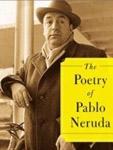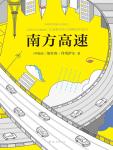

最新书源
-
Your Laughter 来自 点点小说
更新 2019-11-21 20:46:10 -
Your Laughter 来自 紫云宫小说网
更新 2019-11-21 14:42:56
内容简介
Pablo Neruda (1904-1973)Pablo Neruda was born in Parall, Chile. He studied in Santiago in the twenties. From 1927 to 1945 he was the Chilean consul in Rangoon, in Java, and then in Barcelona. He joined the Communist Party after the Second World War. Between 1970 and 1973 he served in Allende’s Chilean Government as ambassador to Paris. He died shortly after the coup that ended the Allende Government.Neruda's career as a poet began with love poetry and ended with love poetry. One of his very last works, written only days before his death, is The End, a love poem to [his wife] Matilde. There were, of course, changes; there were deviations during the period of Residence on Earth, for example; there were turns and innovations during the period of political and epic poetry that began in the late thirties and culminated in 1950 with Canto General, but there was also a remarkable continuity. Erotic poetry and love poetry were for Neruda an important, essential part of his poetic life.Pablo Neruda was one of the most prolific poets of our century. To trace the development of even one aspect of his poetic world is far from easy. Yet in the case of his erotic poetry and his love poetry the outline of that development is clear enough. The early Neruda, from his first published book, Crepusculario, and then especially in Twenty Poems, is a sensualist and a materialist in his approach to love and woman…. [In Twenty Poems] Neruda intensifies the complete fusion between woman and Nature. Joy and despair, like Marisol and Marisombra, mingle and alternate in this book, but whatever the emotion of the moment, the poet is constant in his identification of woman with Nature, in his use of Nature imagery to describe woman, and in his conception of woman as a vehicle for a return to Nature. In these richly sensual poems, the style is still on the whole modern Romantic with symbolist overtones and the first few hints of the newer, more disturbing poetic styles. Yet they remain constructive poems, in that they are organized around experiences in which real human beings, Neruda himself and the women he loved, provide a stabilizing platform upon which each poem is built.
展开全部标签: 英文


